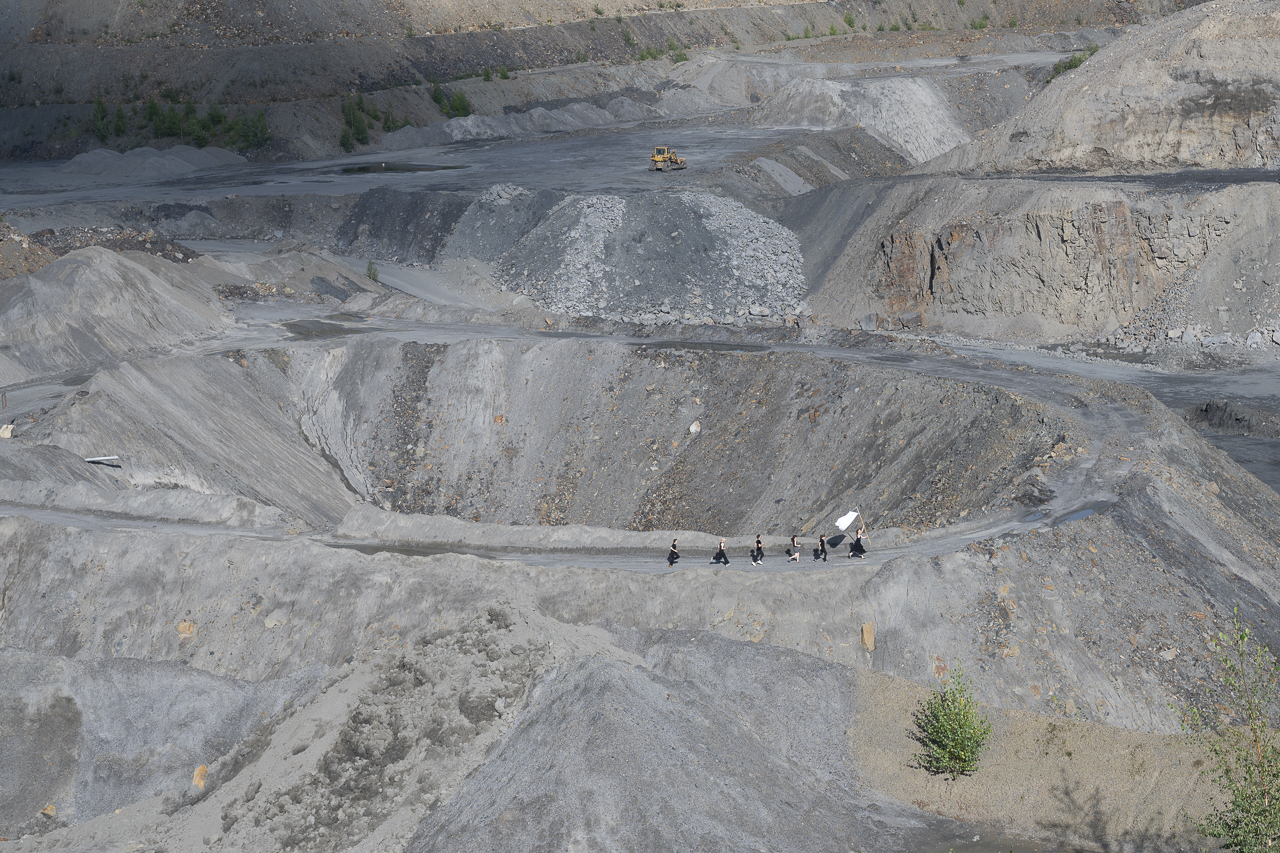Canto III
2023, videoperformance, Piesberg quarry, Osnabrück, Germany
A concentric march over the remnants of the hinterland. The law of contrapasso enacted in an anthropic landscape. The Dantesque allegory evokes the consequences of the underground surfacing. The deformation of the terrain becomes an amphitheater amplifying the perpetual act of ignoring. Pursuing with childlike discipline a white banner, symbolizing surrender and guilt for an indolent extinction.
The image
Canto III is a series of video performances created in the Piesberg mine and quarry in Osnabrück, Germany. The action in the performances is directly inspired by the punishment described by Dante in the third canto of the Inferno, dedicated to the "Indifferent" (Ignavi): a group of performers, one of whom carries a large white banner, proceeds in a line through the spaces of the quarry and the mine.
The research
The series is inspired by Canto III of the Inferno in Dante Alighieri's Divine Comedy. Dante and Virgil encounter the "Indifferent" (Ignavi): those who, during their life, never acted either for good or for evil, merely following the ideas of those in power. In this canto, we see the "law of contrapasso" applied for the first time, a principle that governs the punishment inflicted on the guilty through the opposite of their sin or by analogy to it. Dante thus describes their punishment: they are forced to chase a white banner (a standard with no representation or inscription) naked for eternity, as it moves quickly and spins around itself, while wasps and hornets sting them constantly.
Credits
By Salvatore Crucitti and Gloria Zeppilli
With Jan Kuśmirski, Marcel Matys, Alice Petrosino, Annika Anna Schröck, Ana Trif, and Zuzanna Ziętek
Supported by the International Performance Art Archive Black Kit, Quartier Am Hafen, Italian Cultural Institute of Cologne, Lab Europe, Gallery Hase 29, Erasmus+
Special thanks to the Museum Industriekultur in Osnabrück
Photography credits Angela von Brill
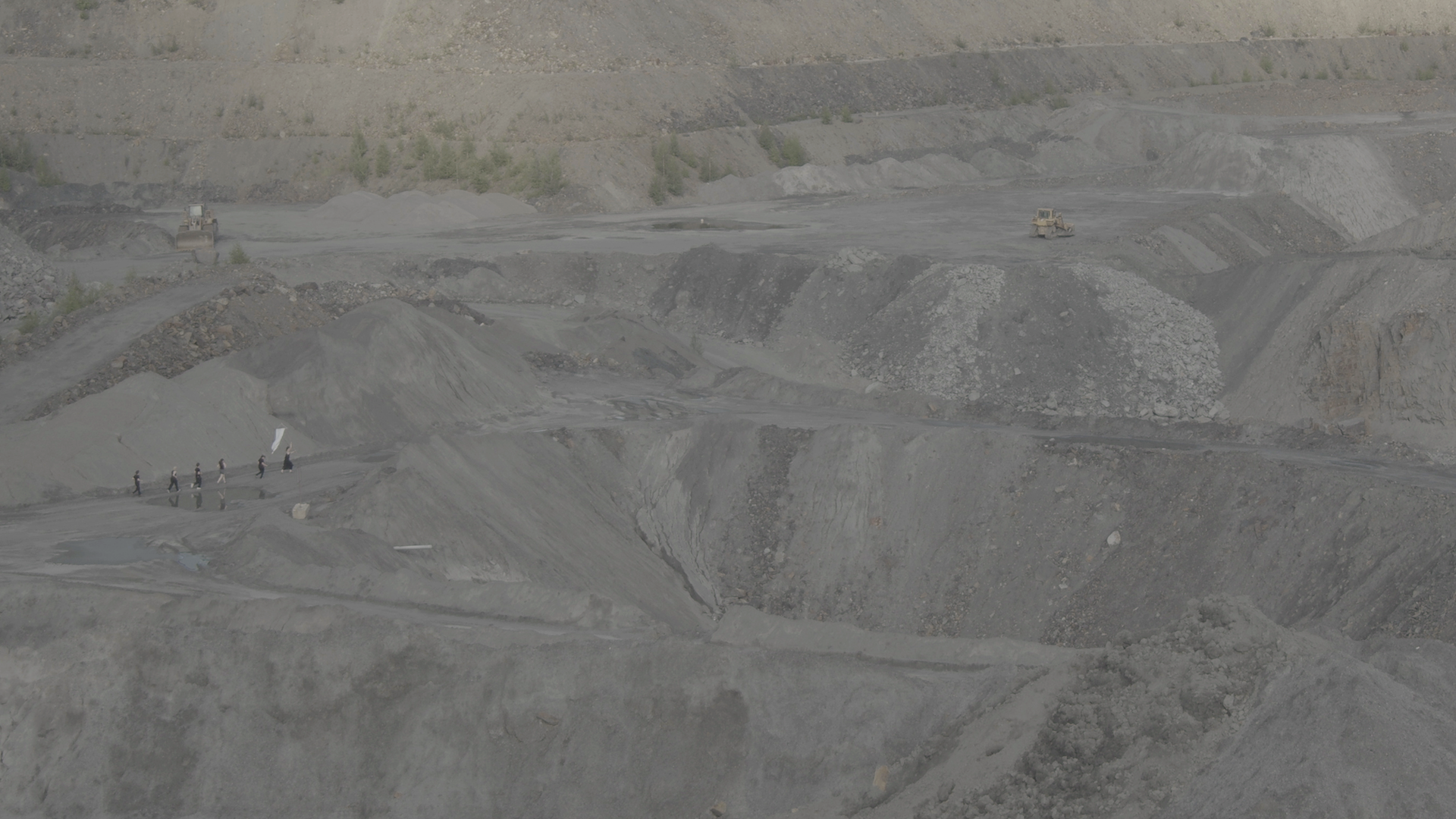
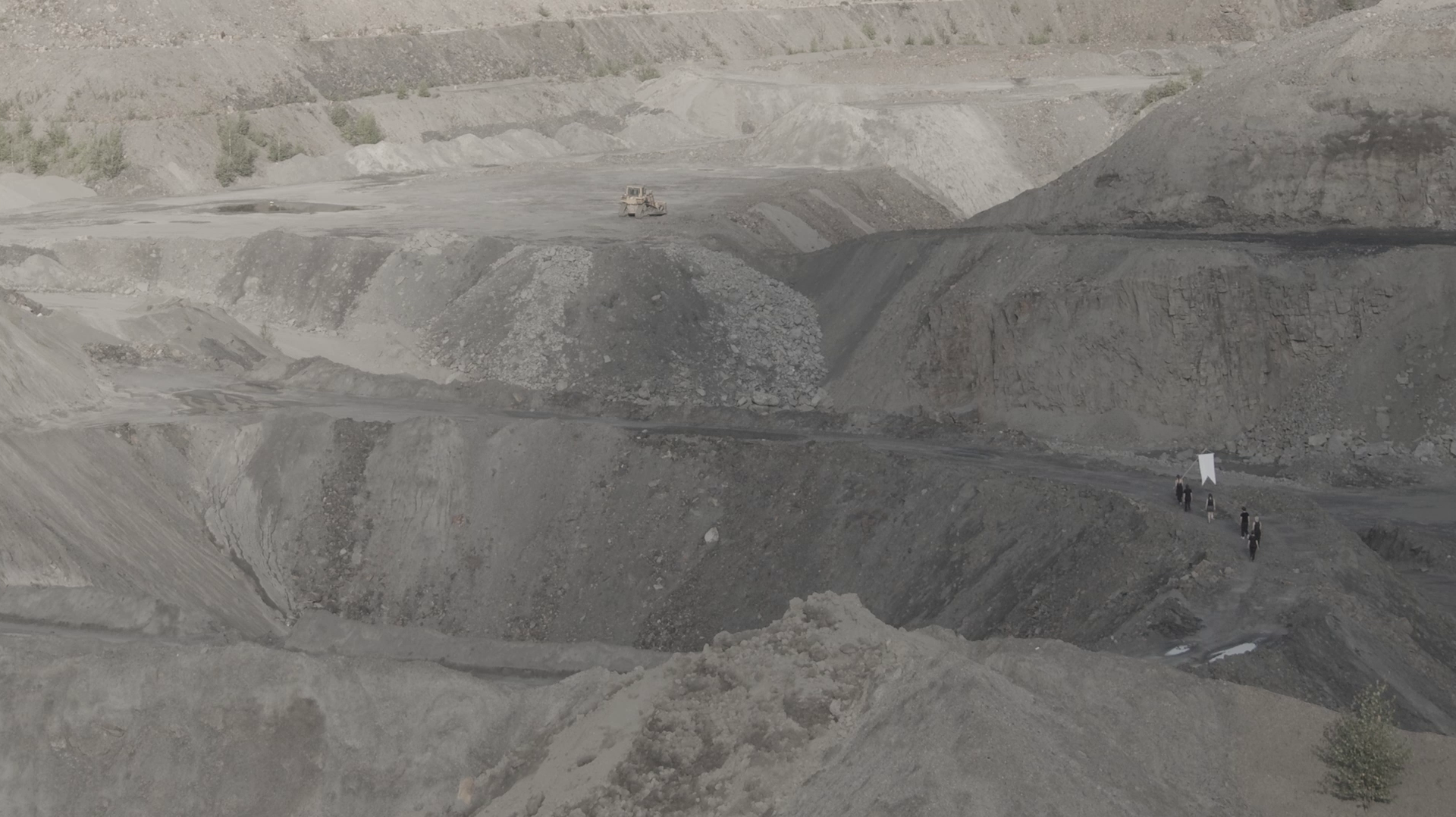
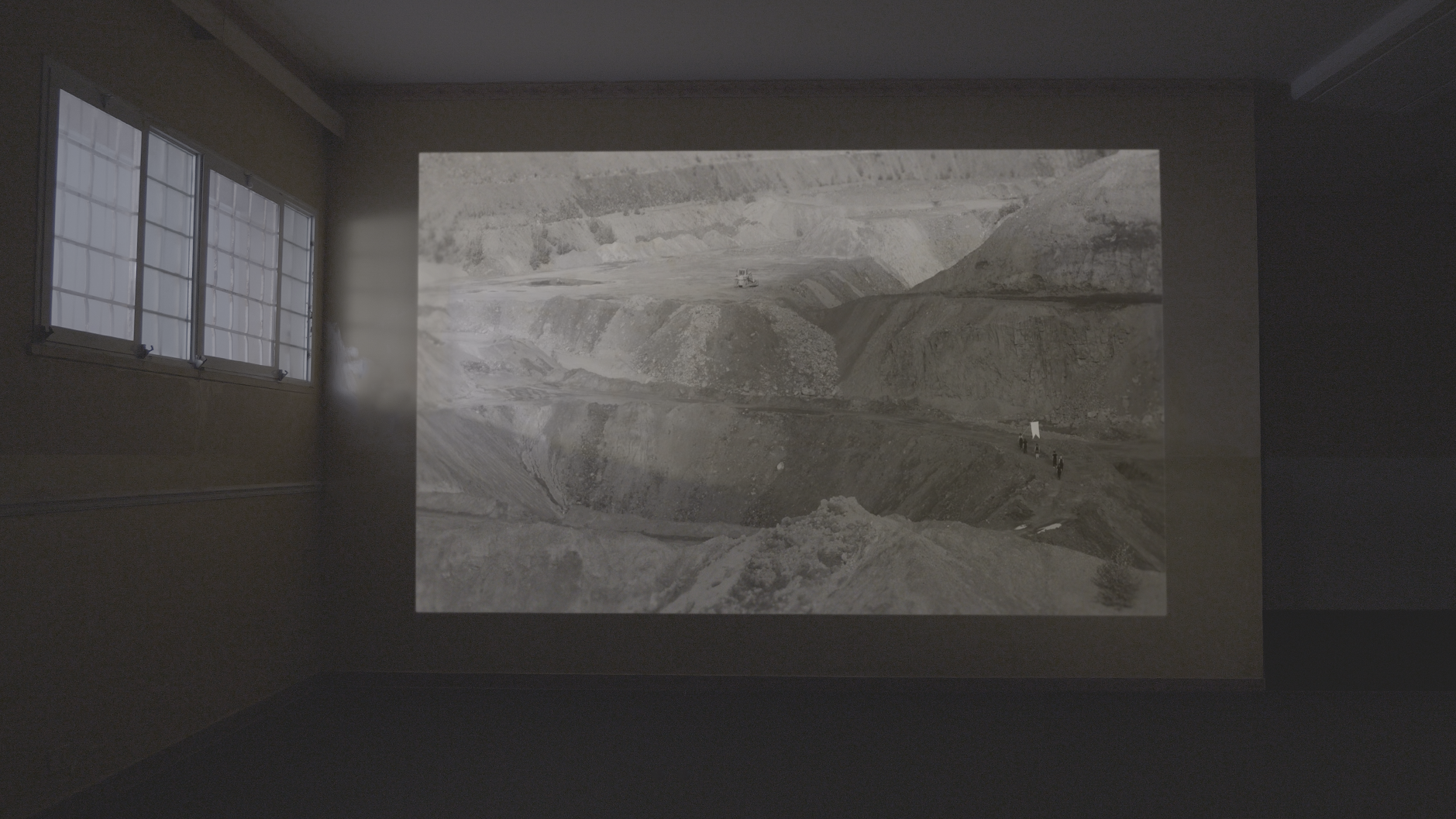
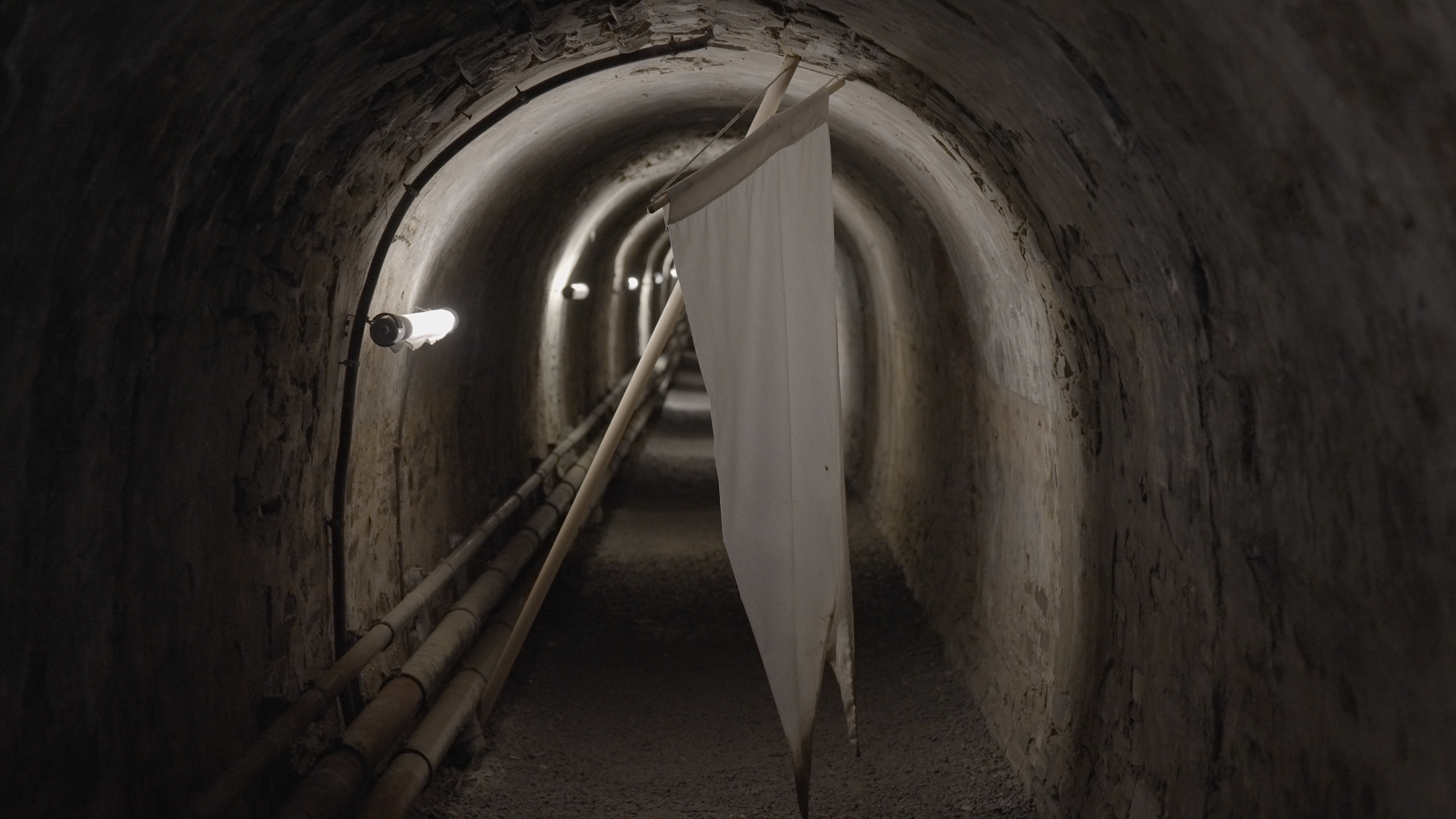
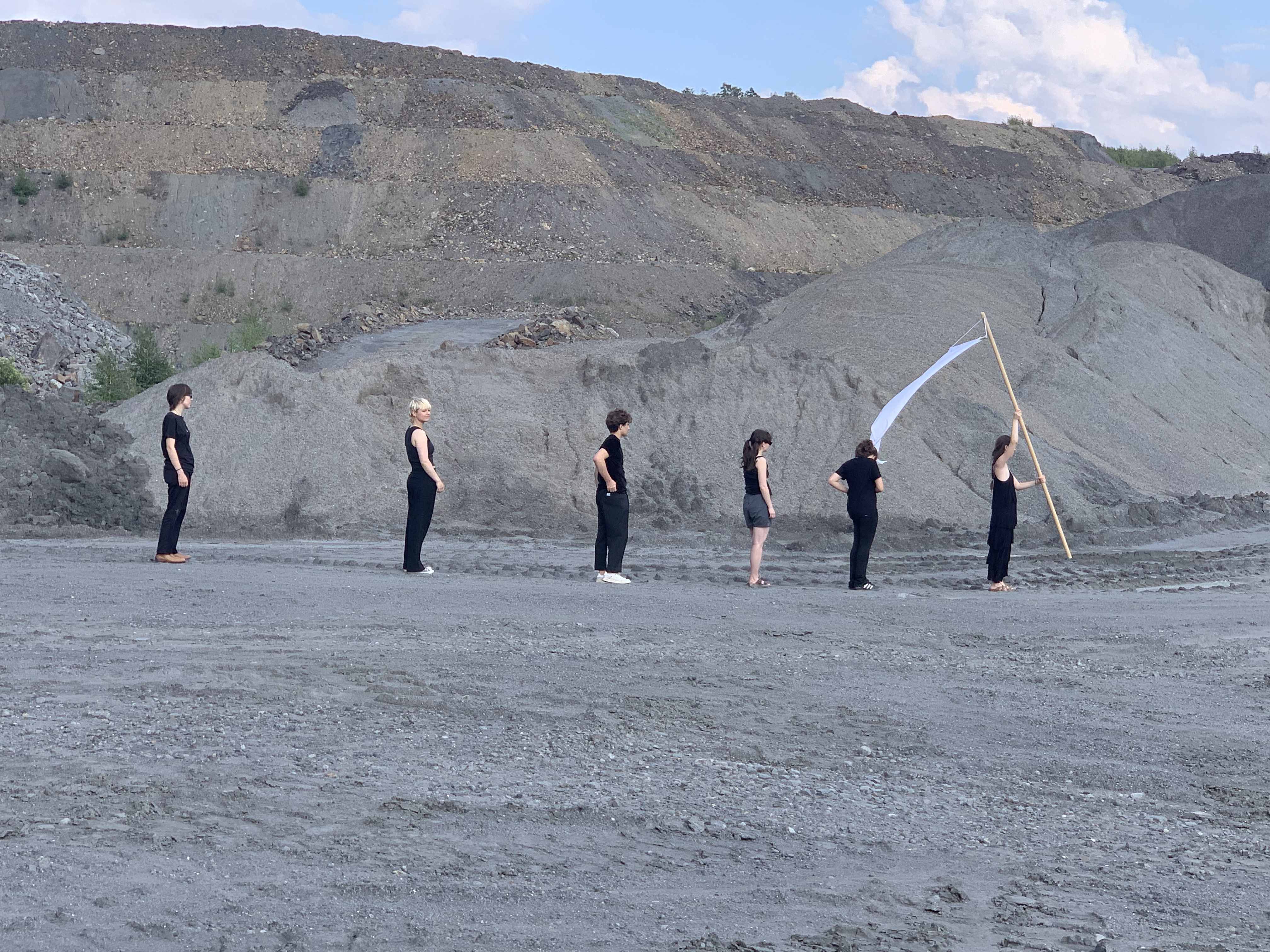
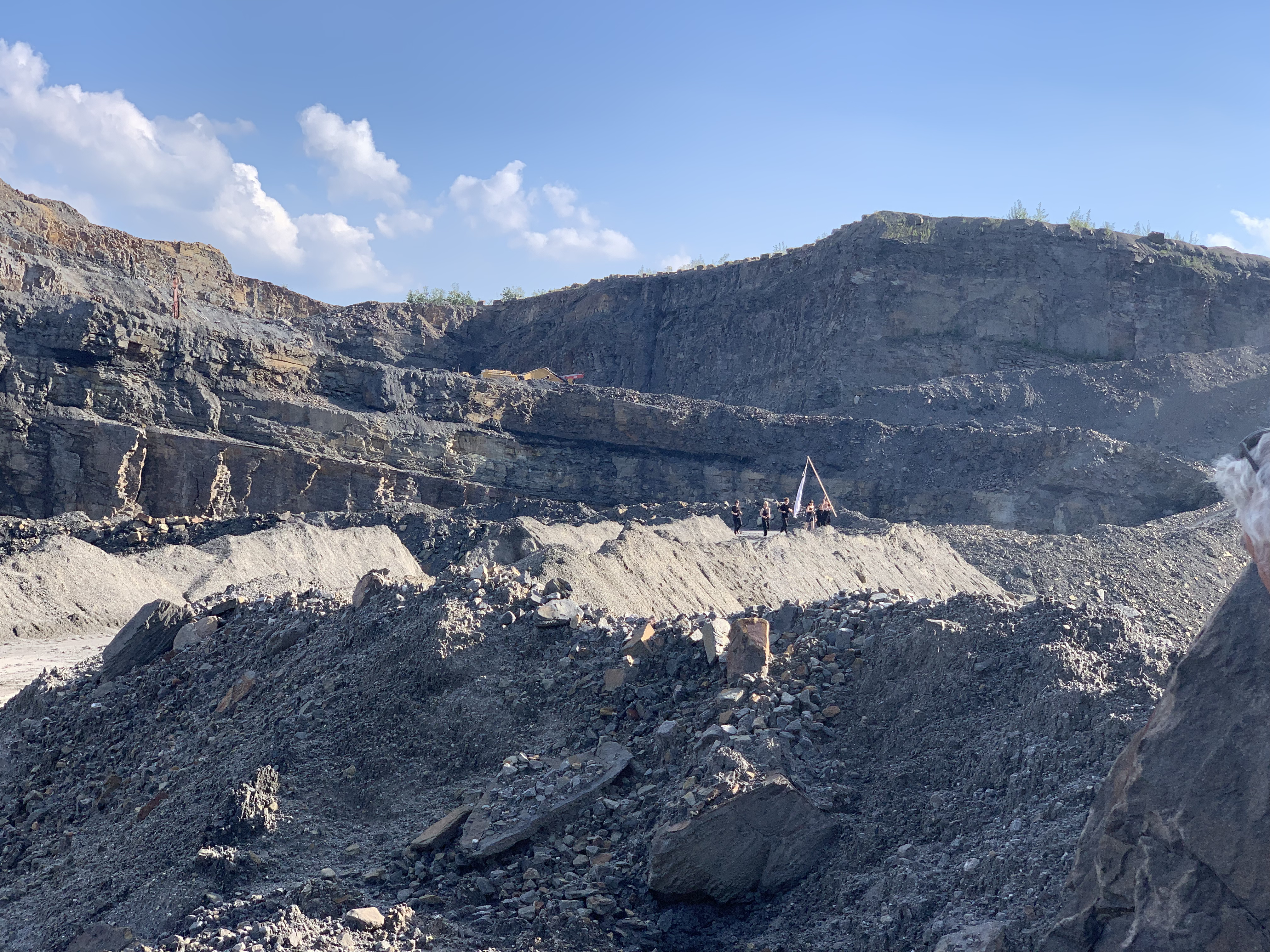
Istituto Italiano di Cultura di Colonia - Italienische Kulturinstitut Köln
Artificial Hells - Quartier am Hafen
